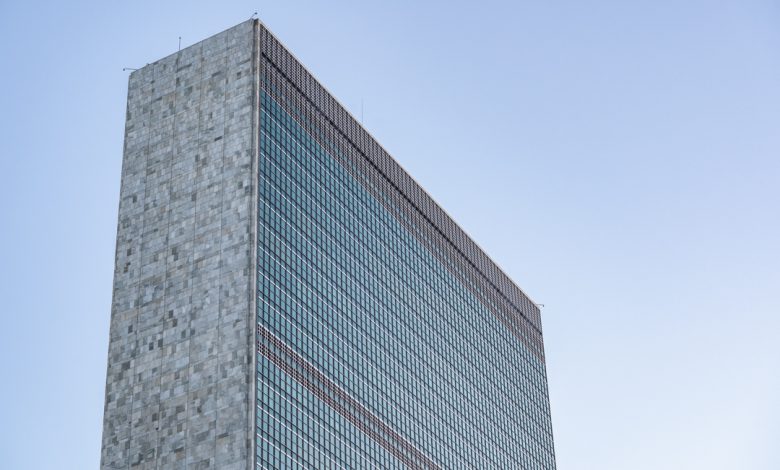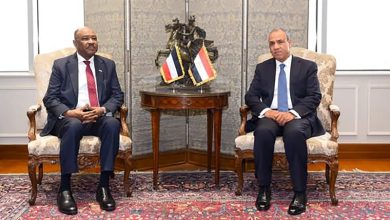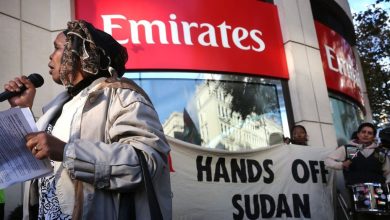Ten Challenges for the United Nations in 2024-2025 (1-2)

Sudan Events – Agencies
What’s New?
Leaders will meet at the United Nations General Assembly during a grim moment. The war between Israel and Hamas has cast a shadow over the international organization, and many of its members are concerned that it is failing in its core mission of maintaining peace and security.
Why Does It Matter?
Geopolitical rifts and resource gaps are diminishing the UN’s impact. However, the organization remains deeply involved in mediation efforts, peacekeeping, and humanitarian aid, often in extremely volatile environments where the chances of success are slim, and no other country or multilateral body can play the same role.
What Needs to Be Done?
UN members should strengthen the organization’s mediation efforts in cases such as Sudan and Myanmar and enhance its presence in Gaza. Institutionally, there are opportunities to reform peacekeeping, peacebuilding, and sanctions enforcement processes. The organization must also prepare for new leadership in Washington.
First: Overview
World leaders will gather in New York for the annual high-level session of the United Nations General Assembly in late September, following one of the most turbulent years in the organization’s recent history. Hamas’s attacks on Israel on October 7, 2023, and Israel’s subsequent military operation in Gaza—occurring just weeks after diplomats met at the UN headquarters—led to emotional but often unproductive debates in the Security Council, General Assembly, and other UN bodies. While the crisis in the Middle East dominated attention, the UN was also grappling with other wars in Sudan and Ukraine, albeit with limited influence.
Relations between the United States, Russia, and China in the Security Council have worsened, and UN officials acknowledge that morale is low. Nevertheless, the UN remains engaged in a wide range of peace-making initiatives and humanitarian aid efforts in conflict-affected countries. The organization needs to find ways to maintain and enhance these efforts despite discouraging geopolitical circumstances.
This is not the first time the UN has faced periods of doubt and division after the Cold War. Similar periods of uncertainty followed peacekeeping failures in the Balkans and Rwanda in the 1990s, as well as debates over the Iraq War in 2003. But while UN members managed to rally, reconcile, and enact significant reforms on each occasion, it is unclear whether they can or even want to do so this time. Although UN members will attend a special summit on the “Summit of the Future” to discuss reforming the organization, alongside their usual high-level commitments in September, major shifts in the UN’s peace and security work are unlikely to emerge soon.
The somber mood surrounding the organization does not mean that the UN has become a spectator on the global stage. As a platform for diplomacy and a hub of operations, it continues to address various crises and conflicts. UN agencies involved in aid and peacekeeping still possess substantial, sometimes unique, capacities to manage conflicts. Even when the UN faces criticism and risks marginalization, as in Gaza or Myanmar, it provides much-needed—if insufficient—assistance to civilians that other entities cannot reach. Diplomatically, the UN remains the only place where all countries can voice their concerns about the world’s major crises today.
Despite divisions among states limiting what the UN system can achieve—especially in the Middle East and Ukraine—the organization is not inactive in every case. In places like Haiti and Colombia, various UN branches, often in collaboration with or support from others, can play a role in alleviating suffering and restoring peace. There are also situations, like Sudan and Myanmar, where the UN has faced political sidelining but might find new opportunities for diplomatic engagement. Even if the “Summit of the Future” does not yield major reforms, it might open the door for smaller improvements that strengthen certain aspects of the UN’s work, including peace operations. It cannot be expected for the UN to mend the divisions between its most powerful members. However, diplomats may still agree on more modest initiatives that could help reduce the violence and instability fueled by international rivalries.
Second: The Year in Review: Trends in Diplomacy and Crisis Management at the UN
Even without the war between Hamas and Israel, the past twelve months would have placed immense pressure on the UN. Relations between Russia and the Western permanent members of the Security Council—the US, UK, and France—continued to deteriorate following Russia’s full-scale aggression against Ukraine, affecting the council’s ability to address other crises. Israel’s extended military campaign in Gaza not only dominated the council’s attention after October 7 but also sparked debates in the General Assembly, International Court of Justice, and other UN bodies. Despite diplomats’ anger and frustration over the war, UN members were also keen not to let the Middle East crisis overshadow all other work. By mid-2024, the conflict in Gaza was absorbing somewhat less diplomatic energy in New York, even without a ceasefire. The UN’s failure to end the war or reduce the risk of regional escalation did not stop its work elsewhere, but there is no doubt that this crisis has cast a long shadow over the organization.



